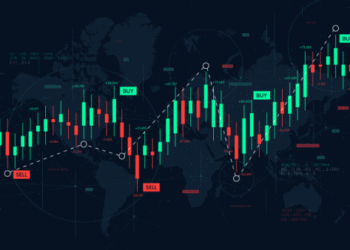Citigroup has downgraded U.S. stocks to a neutral rating, suggesting that despite recent market turbulence, valuations remain high. The bank’s global equity team, headed by strategist Beata Manthey, also noted the increasing prospects of additional earnings declines by U.S. corporations, thus necessitating a revision of investment plans.
The team led by Manthey in the company’s note to clients said, “Last year towards the end of the year, we suggested moving money from U.S. stocks to other markets, and the current events only support this position.” Several factors that support this view include the new tariffs that may affect U.S. trade, the AI beneficiaries concerns on platforms like DeepSeek, and Europe’s shift to increase defense spending. These factors indicate that there is a changing world order which may erode the United States’ market power.
Earnings issues are the major focus of the analysis made by Citi. Despite the recent sell off, U.S. stocks are still trading at about the 80th percentile of historical valuation multiples, which means that they are still relatively expensive. Manthey said that major markets such as Europe, Japan and EM have factored in zero EPS growth for the next 12 months but have not factored in a recession. Nevertheless, U.S. valuations suggest slightly higher EPS growth, therefore, there is less room for disappointment. “From being priced for perfection at the beginning of 2025, U.S. equities have moved to single-digit EPS growth from double-digit,” the strategists noted. Nevertheless, the authors expect more downgrades to come as analysts start revising their forecasts.
The current relief in U.S. stocks following President Trump’s announcement of a 90-day tariff suspension has eased some concerns but not all risks have been eliminated. Citi notes that the rally “price out the most bearish scenarios,” but markets like Japan, EM and Europe remain more cautious on growth expectations and therefore provide some protection against potential earnings misses. The bank expects tariff issues to come back to the fore after the temporary truce and may cause further market instability.
Equities are not the only asset class that investors’ sentiment towards U.S. assets is changing. Lower dollar value and increasing U.S. Treasury yields point to capital flight, which Citi views as a reason to diversify. “The cracks in the U.S. model are likely to persist,” Manthey’s team advised, therefore investors should decrease their exposure to the U.S. equities.
Even with the negative outlook, Citi identifies some positives. The strategists raised the global technology sector to overweight due to the tariff reprieve which could boost near-term performance. Some of the Magnificent 7 tech giants in the U.S. may recover, based on undervaluation from the recent underperformance and clearer free cash flow outlook. This may make growth stocks a defensive play. However, high multiples and medium term risks dampen the enthusiasm for U.S. equities as a whole.
Citi made adjustments to its allocations to capture the new trends globally. Japan equities were upgraded to overweight due to their underperformance in 2025 and negative earnings expectations. Europe is preferred at overweight, while EM is at underweight as vulnerabilities exist.
Therefore, Citigroup’s downgrade of U.S. stocks marks a critical time for investors. Therefore, in an uncertain environment, investors can consider diversification into less frothy markets like Japan and Europe, as well as picky tech investments.










